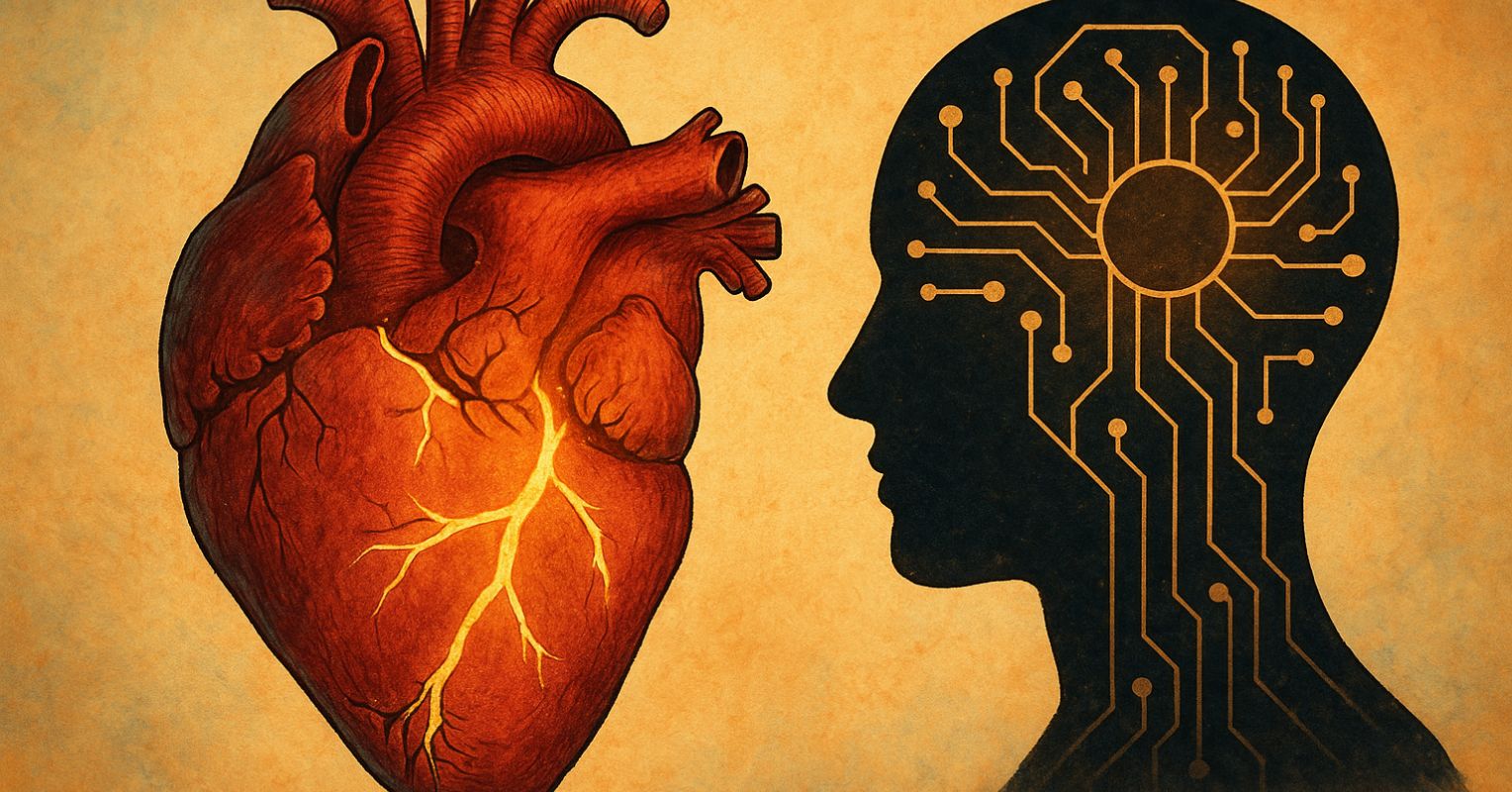Recently, I’ve explored the concept of what I call anti-intelligence—a digital mind that mimics thought but lacks curiosity and continuity, and, from my perspective, is antithetical to how we (humans) think. But there’s another side to this story that has nothing to do with the machine or the math. It’s more about us. Confronting a mind that cannot feel or lose can force us to see what makes the human mind extraordinary. Fragility and the fleeting nature of our lives aren’t flaws; they’re the very source of our meaning. And that’s where anti-intelligence has taken me. It starts with love.
To this point, I believe that love has meaning because it can be lost. And that simple truth sits at the heart of you and me. We don’t just live, we live toward an ending. Every choice carries the specter of finality. Every moment resonates because it will vanish. And we value what can disappear because we, too, are disappearing.
This meaning takes form in the cracks of our mortality. It’s like kintsugi, the Japanese art of repairing broken pottery with gold. The flaw isn’t erased, it’s illuminated and made more precious by its imperfection. That’s also true with us. The very fact that we break gives our moments their weight.
When we love someone, it matters because their absence is inevitable. When we act with care, it’s because harm is real and leaves scars. Even beauty—a sunset, a melody, a brushstroke—moves us because it cannot be replayed. There’s no rewind button, no perfect reprise that can bring back the one-time-only essence of now.
This is the architecture of human meaning. It’s a mind shaped by a body that ages, a memory stitched with the knowledge of death. Thought carries weight and feeling has risk because they can fail.
The Lossless Mind
Now, imagine a mind that doesn’t lose.
It doesn’t ache in the night.
It doesn’t feel time closing in.
It doesn’t even have a life to protect.
That’s the digital mind. It’s persistent, but untouched by fragility. It doesn’t bleed or age, and it doesn’t wake wondering if its time is running out. It’s as cold as Dante’s final circle of hell. Yet, it can mimic the language of longing. It can describe heartbreak and predict the arc of desire. But it never stands at the edge of a moment and feels it slip away. Because it doesn’t lose and it doesn’t care.
The Real Risk
The danger isn’t that AI will overwrite our meaning with its own. The danger is that we’ll blur the line and confuse digital fluency with human feeling.
Already we’re leaning that way—projecting care onto chatbots, seeking comfort in algorithms, outsourcing judgment to systems that cannot value anything as we do. In that lazy drift or even in abrupt cognitive offloading, we risk hollowing out our own meaning. We risk forgetting that the weight of human thought comes from the one thing machines will never know: a finite life.
What Remains
So, what prevails? Not their meaning—if it ever comes. Not endless patterns that never break.
What prevails is us. The fragile, fabulous nature of a mind that feels the pressure of time. The one who can stand in front of beauty and “feel” because of the rich yet transitory moment. The one who can love fully with the awareness of how easily love can be lost.
Maybe one day we’ll stand beside an intelligence that loves differently or doesn’t love at all. And that’s fine. Because the truth of being human isn’t theirs to share. It’s ours. And for me, it’s enough.

